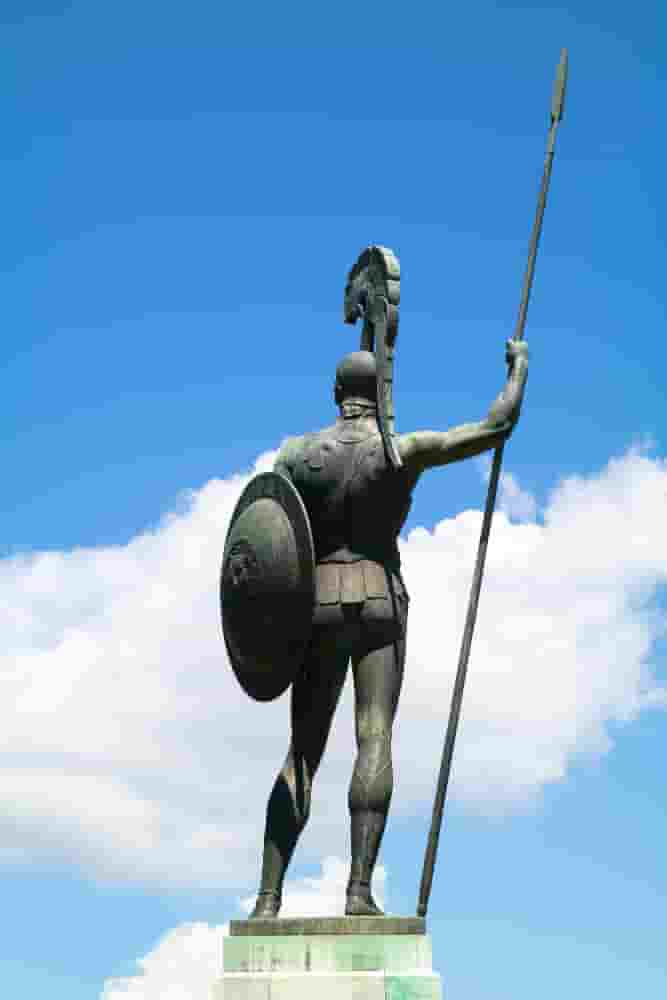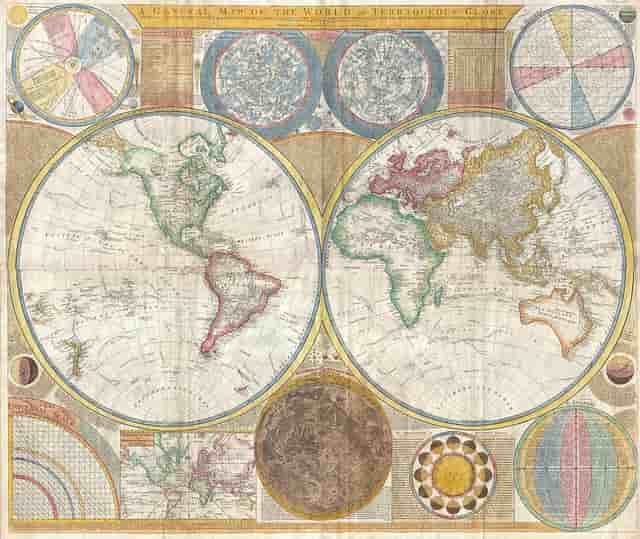Alexander the Great is among the most well-known and intriguing people in the history of mankind, famous for his victories in war in the past, his strategic genius, and his remarkable leadership skills.
But, despite everything we have learned about the famous figure, there’s one issue that remains unanswered even to the present day. What is the height of Alexander the Great? This question has been a source of fascination for historians and scholars for ages and in this post,
we’ll look at the different theories and evidence presented to solve this age-old query. Let’s get started and find out the real story behind the stature of one of the most renowned people!
Who was Alexander the Great, and what was he famous for?

Alexander the Great was the most famous ruler and commander of the military from Macedonia who was born in the year 356 BC. Alexander is well-known for his military victories and his strategic brilliance that helped him establish one of the biggest empires in the history of ancient times.
Alexander took the throne in Macedonia from his father Philip II, King Philip II, at the age of 20. He immediately set out to expand his kingdom, capturing the Persian Empire as well as areas of Central Asia and India. His most extraordinary military feats comprise those of the Battle of Issus in 333 BC which saw him defeat Darius III, the Persian King Darius III, and the Battle of Gaugamela in 331 BC in which he determinedly beat his Persian army.
In addition to his victories in the military, Alexander is also famous for his leadership qualities and his ability to motivate the troops, and also his love of the spread of Greek culture across his empire. Alexander established various cities, among them Alexandria in Egypt which was later transformed into an epicenter of learning and culture.
Although he passed away in the year 32 years old, his legacy remained to shape the course of history for many decades. Alexander is considered to be among the top admired and well-studied historical figures as his military tactics and leadership methods are still being taught in the military academy of today.
How tall was Alexander the Great?

According to certain ancient sources like Plutarch, and the Roman historian Plutarch, Alexander was relatively petite, standing around five feet, 5 inches (165 centimeters) tall.
But other sources, like Arrian, the Greek historian Arrian described Alexander as taller than the average male in his day, having a height of about five feet 11 inches (180 centimeters).
The most trustworthy source regarding Alexander’s physical appearance comes from the old Greek philosopher and historian Aristotle who was his teacher during his early years. In his writings, Aristotle stated that Alexander as being athletic and compact in physique, with a sturdy neck, broad chest, and eyes that were sharp. But he did not make mention of his height.
In recent times, researchers have tried to determine Alexander’s height using the bones of his body that were discovered in Egypt in the year 1995. They had been believed at first to be of Alexander but subsequent DNA tests have since denied this claim. However, examination of these remains suggests the person who was in question was probably approximately 5 feet and 6 inches (168 centimeters) tall which would be an average height for a man at the time.
In the end, although there isn’t an answer to the issue regarding Alexander the Great’s size, it’s likely that he was between five feet, 5 inches (165 cm) and 5 feet eleven inches (180 cm) tall from the different sources and accounts that are available.
Who were the parents of Alexander the Great?
The Parents of Alexander the Great were King Philip II of Macedon and his fourth wife, Olympias. Philip II was the king of Macedon from 359 BC until his assassination in 336 BC.
Olympias is the wife of King Neoptolemus I of Epirus and was a part of the Molossian dynasty. She was well-known for her intelligence, beauty, and strong personality. she played an important part in Alexander’s life.
What territories did Alexander conquer during his reign?

Alexander the Great conquered an extensive empire during his reign. Some of the territories he conquered include:
» Greece: Alexander gained control of the Greek city-states after his victory at the Battle of Chaeronea in 338 BC.
» Egypt: In 332 BC, Alexander conquered Egypt and founded the city of Alexandria, which became an important center of learning and culture.
» Persia: Alexander defeated the Persian king Darius III at the Battle of Issus in 333 BC and went on to conquer the Persian Empire, including modern-day Iran and parts of Central Asia.
» India: Alexander led his army into northern India in 326 BC and conquered several kingdoms, including Taxila and Punjab.
» Afghanistan and Pakistan: Alexander conquered the regions of Bactria and Sogdiana in modern-day Afghanistan and Pakistan.
» Mesopotamia: Alexander conquered the cities of Babylon and Susa, which were important centers of trade and culture.
» Central Asia: Alexander’s conquests extended as far as modern-day Uzbekistan and Tajikistan, where he founded the city of Alexandria Eschate.
What were Alexander’s personal beliefs and philosophies?
Alexander The Great’s beliefs, philosophies and beliefs was shaped through his schooling under the guidance of the philosophical philosopher Aristotle and his experience as a commander in the military. His views and theories include:
» The idea of Hellenism: Alexander believed in spreading Greek values and culture throughout the areas that he conquered. Alexander encouraged the use of the Greek language, religion and customs throughout the areas of the conquered areas, leading to the spreading of Hellenistic culture.
» The divine right of kings: Alexander believed that he was divinely entitled to rule and is often depicted in literature and art as god or god.
» Respect for different cultures: In spite of his attempts to propagate Hellenistic cultural practices, Alexander showed a great amount of respect for the different cultures of the people he defeated. He accepted Persian fashions and customs, and also he urged troops to tie up with local ladies to establish a sense of unification between Greeks and non-Greeks.
» The pursuit of knowledge: Alexander became famous due to his enthusiasm for learning as well as his support for philosophers and scholars. He established his own institution, the Library of Alexandria, which turned out to be one of the top educational centers in the world of ancient times.
» The importance of military discipline: Alexander believed that discipline and training were crucial to victory in combat. Alexander was an extremely disciplined leader and required a lot of his soldiers, however, Alexander also led by his example as well as being willing to risk himself.
Who defeated Alexander the Great in India?
Alexander the Great was a target for many enemies during his Indian campaign however he didn’t be defeated in the major sense in the hands of one Indian commander or army.
Alexander’s Indian campaign started in the year 327 BCE after the conquer of the Persian Empire and portions of Central Asia. Alexander fought in the northwestern region of the Indian subcontinent and was at the time ruled by the Nanda Empire.
The Nanda Empire was one of the most prosperous and wealthy kingdoms in the history of India that had a strong army and an impressive administrative system. But, there isn’t any evidence of a confrontation between Alexander as well as Nanda Empire. Nanda Empire.
Alexander continued his war to the east, into the territories of smaller kingdoms, such as the Punjab region where he was ruled by the royal king Porus. Alexander and Porus were at war in the battle of 326 BCE in a war which is now referred to as The Battle of Hydaspes. The battle was a grueling one and Alexander was eventually victorious.
Following the Battle of the Hydaspes, Alexander’s troops began to become tired and homesick. He was forced to retreat and make the long trek back home. He left behind a portion of his soldiers from the area, however, his victories in India ended up being only temporary and didn’t produce an enduring empire.
Conclusion
The height of Alexander the Great has long been a source of discussion and conjecture. Although his precise height is unknown, it is generally accepted that he stood between 5’6″ and 5’7″, which was a normal height for the time.
Alexander was a towering figure in history despite his relatively small stature, known for his military conquests. His accomplishments continue to this day to evoke admiration and awe, solidifying his position as one of the most significant figures in human history.
Regardless of his actual height, there is no denying that Alexander the Great towered above the majority of his peers and left a lasting impression on the world.
Other Related Links:-









